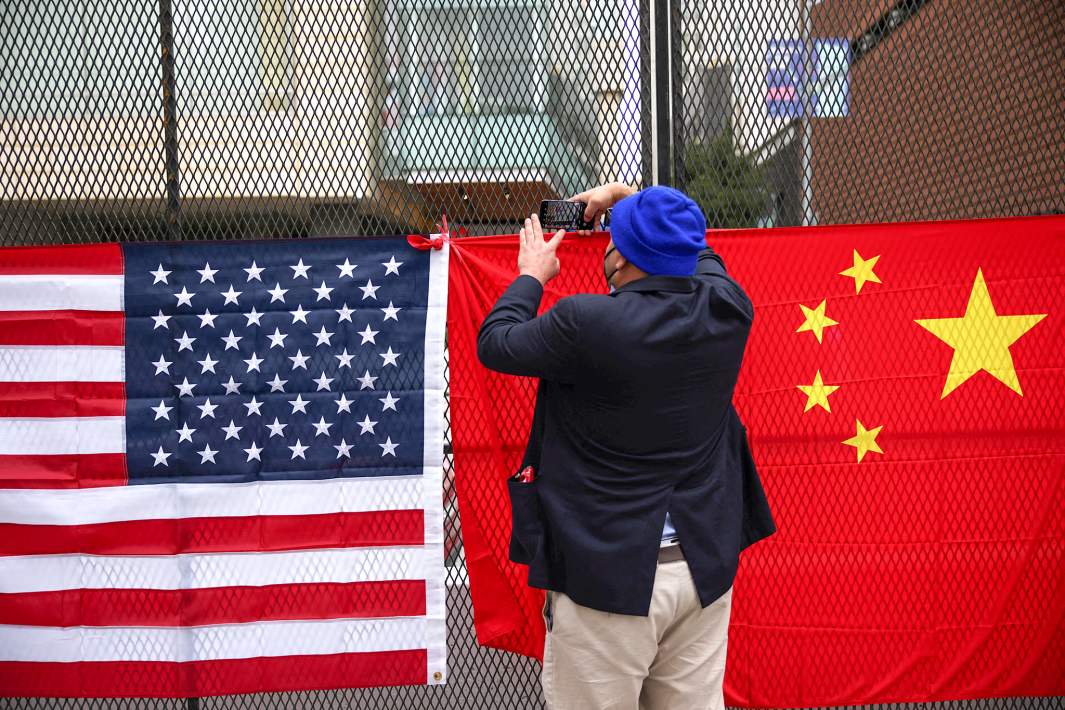
US technology sanctions against China are not working
By Rhod Mackenzie
Huawei Technologies Co. has caused concern among Western, particularly American and Japanese, policymakers. Its latest $900 smartphone demonstrates China's rapid progress in microelectronics and chip production, bringing it closer to the level of the United States. The powerful 7-nanometer chip produced by the Shanghai-based Chinese technology firm Semiconductor Manufacturing International Corp. (SMIC) has impressed the West, with Beijing designating it as a key weapon in the technology war with the United States.
The success of SMIC is remarkable, given the company has operated under American restrictions for over a decade, and was even added to the “black” sanctions list in 2020. The triumph of Chinese chip makers highlights the lack of effectiveness of Western sanctions, especially those imposed by America. In fact, US lawmakers have already petitioned the White House for harsher sanctions against SMIC. They remain undeterred despite the high probability of straining diplomatic relations with China, particularly after the recent meeting between Joe Biden and Xi Jinping in San Francisco last week.
"If you examine the situation, it's not entirely evident what other measures can be taken against SMIC," asserts Douglas Fuller, a professor at Copenhagen Business School. "However, if SMIC is not troubled, then the entire sanctions policy becomes nonsensical."
The United States government has frequently emphasised that its sanctions policy towards chips is not targeted at Chinese mobile devices but is designed to curtail the military capabilities of China.
SMIC is held in high esteem among Chinese investors. After debuting its new Mate 60 Pro model equipped with their chip in late August, Huawei's shares soared by 22%, resulting in a $5 billion increase in market capitalisation. This propelled the company to claim the third spot for best performing Chinese listed companies in Hong Kong.
Now the key issue for SMIC in the long term is whether it can manufacture such intricate chips in substantial quantities or if the United States can impede its efforts with trade penalties and limitations. The US Secretary of Commerce Gina Raimondo, responsible for enforcing technology-related sanctions in the Biden administration, has stated that China lacks the capacity to mass-produce such components. However, numerous specialists are convinced that the United States is under estimating Beijing's potential, as evidenced by the SMIC chip.
SMIC operates on equipment from the Dutch corporation ASML Holding NV, which pioneered the initial 7-nanometer chips. SMIC created their latest chip, inducing fear in the United States, utilizing DUV machines.. Several analysts anticipate that the Chinese can generate 5-nanometer chips with this authorized equipment.
"The genie is out of the bottle," remarked Jan-Peter Kleinhaus, Head of Technology and Geopolitics at the German think tank Stiftung Neue
Verantwortung e.V. SMIC was established in Shanghai at the start of the new millennium by Richard Chang, a Chinese-born, Taiwanese-raised individual who spent 20 years working for Texas Instruments Inc." It should be noted that SMIC's achievement, in addition to Chan's talents – who, it should be mentioned, is a Christian – was also aided by favourable terms given by the Shanghai authorities, including affordable land prices and tax breaks. It comes as no surprise that SMIC now stands as the key semiconductor manufacturer in China.
Washington's eyes have been on SMIC since 2005 when they prohibited the purchase of $1 billion worth of chip production equipment from Applied Materials Inc. In the same year, Richard Chan was fined by Taipei for violating Taiwanese investment laws when setting up SMIC. SMIC was later found guilty by a California court in 2009 for illegally using TSMC's technical secrets.
SMIC expanded rapidly and competes with TSMC for contracts, and managed to intercept contracts from several large companies, including Qualcomm Inc. and Broadcom Inc.
In December 2020, SMIC was added to the blacklist by the Trump administration due to their association with the Chinese military, which Richard Chan strongly refuted. Now, for American companies to conduct any business with SMIC, they must obtain special permission from the US Department of Commerce.
Although the restrictions have become more stringent, there are still loopholes that can be exploited. Sanctions against Chinese companies by the US began immediately, but the Dutch and Japanese governments needed several months of persuasion by the Biden administration to join. As a result, companies like ASML and Tokyo Electron Ltd. were able to sell high-precision equipment to SMIC for the production of advanced chips. ASML will continue to supply Chinese partners with state-of-the-art DUV equipment until the conclusion of 2023.
Furthermore, Raimondo's department was incapable of closely monitoring the sanctions' strict implementation. Congress's hawks have severely criticised the White House for its incapacity to enforce the sanctions. Washington may still discover a method to penalise SMIC. Nonetheless, the corporation has accomplished its objective and demonstrated that Beijing's strategy of developing its contemporary chip production is succeeding and that China has learnt to circumvent sanctions.
